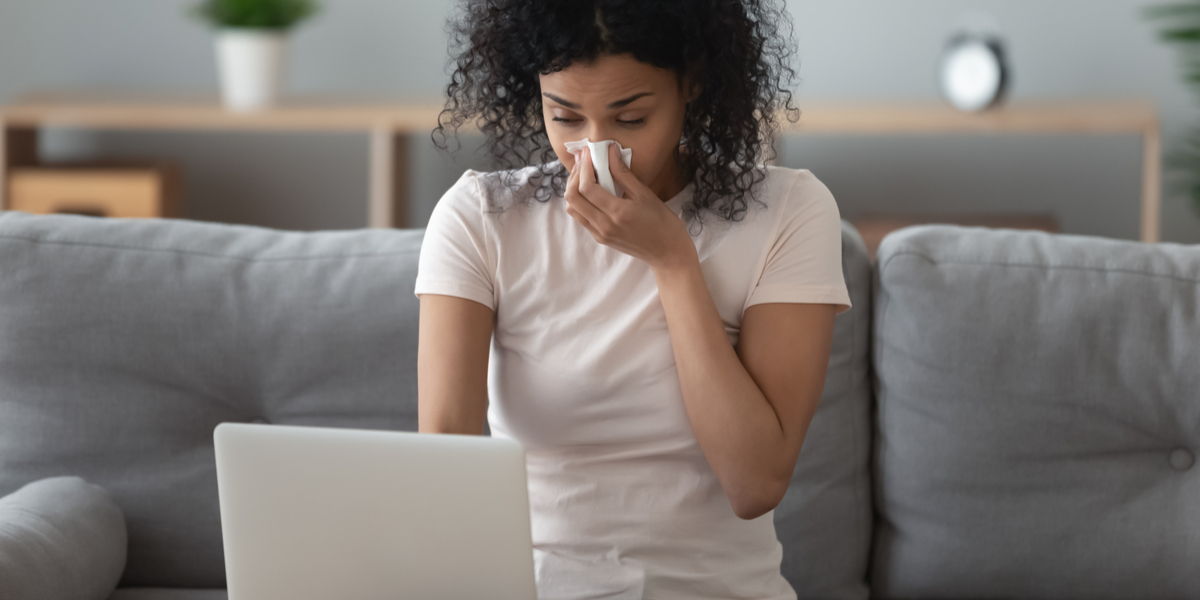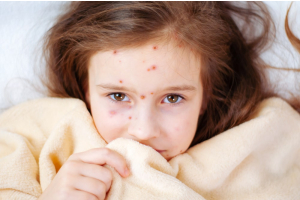Hay Fever: Which Medication Can Relieve Allergic Rhinitis?
Want to be the first to hear latest news and find out about our exclusive promotions.
Sign Up for Our Newsletter:

Hay fever, also known as allergic rhinitis, is an allergic reaction to specific allergens. The most common allergen is pollen, and as such will be more or less severe depending on the time of year. However, other substances, like perfume, wood smoke, cigarette smoke, and pet hair and mold can also trigger rhinitis and occur year-round. Hay fever primarily affects the nose, and can include symptoms like runny or stuffy nose, sneezing, coughing, sore throat, watery eyes, hives, and even headaches.
Preventing Hay Fever
The simplest way to prevent hay fever is to avoid the allergens that produce it. For those who are allergic to pets, avoiding them is advised, and in general, keeping the house dry and dust-free will help prevent allergens. Some people have seasonal allergies that are bad enough that they avoid going outdoors as much as possible, though this simply may not be practical for others.
Treating Hay Fever
There are a few methods for treating hay fever when avoidance of allergens isn’t practical. Intranasal corticosteroids (those administered nasally) are the preferred treatment, but others exist where this isn’t practical. Among the treatment methods:
- Antihistamines: These can be taken nasally or orally. In the case of seasonal hay fever, it is usually better to take them before the onset of symptoms. Ophthalmic antihistamines (eye drops) exist for symptoms affecting the eyes. Among those brand name, allergy pills taken by mouth are Zirtek allergy tablets and Claritin (loratadine), taken once daily. Be aware that loratadine can cause drowsiness or fatigue.
- Steroids: Intranasal corticosteroids (those taken nasally) are usually taken over the course of a few weeks to treat Allergy & hay fever, and thus are usually used to prevent hay fever. Steroids like prednisone can be taken to deal with symptoms, but they tend not to last very long, and most people quickly develop a tolerance to them that affects their usefulness.
- Others: Neti pots can be effective at dealing with congestion. Decongestants are available for stuffed noses. And topical decongestants are available, though their prolonged usage is inadvisable as it may lead to increased symptoms once you stop using it.
- Stop Smoking Service (31)
- Baby Care (16)
- Allergy and Hayfaver (15)
- Medicine Online (1)
- Skin Care (40)
- Vitamin And Supplement (71)
- Hair Care (32)
- Fungal Infection (12)
- Sore Throat Treatment (32)
- Flu Relieving Medicine (3)
- Deodorants (5)
- Diarrhoea Treatment (2)
- Muscle Pain Treatment (6)
- Covid-19 Essentials (4)
- Cold and Flu Treatment (23)
- Back Pain Relief Treatment (2)
- Repeat Prescription Service (12)
- joint Pain Treatment (17)
- Sinus Treatment (1)
- Migraine Tratment (11)
- Arthritis Treatment (2)
- Fungal Infection Treatment (23)
- Press Release (1)
- Sexual Health (34)
- Health Checkup (22)
- weight management service (36)
- Flu vaccination (44)
- Emergency contraception (14)
- Travel clinic (61)
- Corona Disease (1)
- Emergency Medicines Service (2)
- Monitored Dosage Systems service (1)
- Medicines User Review service (1)
- Covid 19 Test (12)
- skincare (34)
- Ear microsuction (34)
- Pain Treatment (2)
- stomach pain Treatment (8)
- Stop Smoking Aids (7)
- headache & pain relief (3)
- Eye Care (11)
- Diabetes (11)
- Skincare Product (22)
- Health Care (9)
- Blood Pressure Check (17)
- hajj vaccination (3)
- Perfumes (7)
- Dental Oral Care (6)
- Foot Care (5)
- Ear Care (7)
- Care Home (8)
- Shingles (3)
- Sinusitis (3)
- Infected Insect Bites (3)
- Acute Otitis Media (2)
- Impetigo (2)
- UTI (2)






